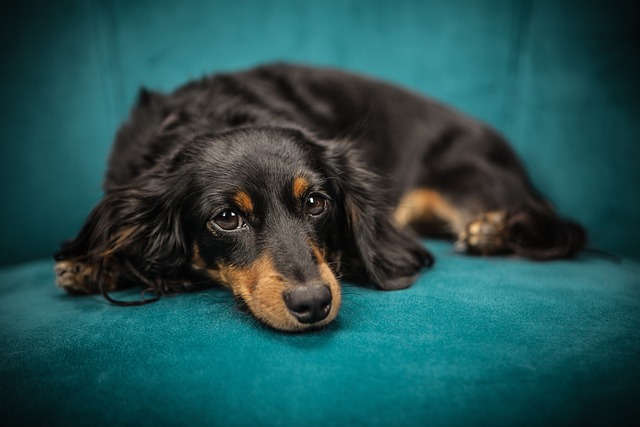
How do i train my dog to be obedient?
Watching your dog dart across the park ignoring your calls isn’t just frustrating—it can put them at risk near busy streets or public spaces.
When you see your beloved little dog trembling, hiding around, and even exhibiting abnormal behavior upon hearing the sound of firecrackers or car horns, your heart must be filled with heartache and concern. Puppies' fear of noise is not without traces. Understanding the underlying reasons and mastering scientifically effective coping methods are key to helping them overcome their fear and regain a peaceful life.
Puppies' fear of noise has multiple physiological and psychological reasons. From a physiological perspective, puppies have much sharper hearing than humans and can hear a wider range of frequencies. Some sounds that are more common to humans may be amplified several times in the ears of puppies, making them unbearable. For example, the buzzing sound of a vacuum cleaner, the spinning sound of a washing machine, these high-frequency and continuous noises can make a puppy's ears feel uncomfortable, leading to fear.
Psychologically, if puppies do not receive sufficient socialization training during their growth process, they are prone to developing fear of unfamiliar noise. If a puppy has little exposure to the external environment during its puppy stage and suddenly hears loud noise, its brain will recognize it as a danger signal and instinctively trigger a fear response. The experience of being scared by noise in the past can also leave a shadow in the heart of the puppy. For example, the sudden loud thunder when a puppy is sleeping may make it fearful of thunder from then on.
When discovering that a puppy is afraid of noise, the owner should first give it enough sense of security. Before the noise comes, take the puppy to a quiet, comfortable, and familiar space, such as its kennel. Cover the kennel with a soft blanket to create a closed and dark environment, making the puppy feel safe. At the same time, the owner can accompany the puppy, gently soothe it, gently stroke its head and back, and convey warmth and comfort through physical contact. When firecrackers sound outside the window, you gently hug the puppy and say softly, 'Don't be afraid, I'm here.' These simple words and warm hugs can ease the puppy's tense emotions.

Desensitization training is an effective method to help puppies overcome their fear of noise. Choose a relatively quiet environment and play some soft noise recordings, such as distant car sounds or slight wind sounds, with a volume so low that the puppy can hardly detect them. Observe the puppy's reaction, and if it doesn't show fear, give it some small snacks as a reward, such as its favorite chicken jerky or cheese, while gently praising it. As the puppy gradually adapts, gradually increase the volume, with small increments each time, allowing the puppy enough time to adapt to the new volume. This process requires great patience and may need to be repeated multiple times, but each progress of the puppy is an important step in overcoming its fear.
When a puppy is afraid of noise, do not overly appease or punish it. Excessive soothing, such as loudly comforting or excessively caressing, may make the puppy mistakenly believe that you are affirming its fearful behavior, thereby reinforcing its fear psychology. Punishing, such as beating and scolding, will only make the puppy more afraid and exacerbate its fear. The correct approach is to maintain a calm attitude, give it moderate comfort with a gentle tone and gentle touch, and make it understand that there is no danger.
In addition to desensitization training, dogs can also alleviate their fear of noise by providing distractions. When there is noise, take out the puppy's favorite toy, such as its favorite ball or plush toy, and play games with it to attract its attention. Or play some soothing music to cover up external noise and soothe the puppy's emotions. When a puppy is focused on playing or immersed in music, its attention to noise will decrease, and fear will also decrease accordingly.
Puppies' fear of noise is a manifestation of their inner unease, and their owners are their strongest support. Every patient soothing, every scientific training, is a deep love for them. Let us use love and patience to help puppies overcome their fears, allowing them to grow happily and carefree under our care, and continue to accompany us through every beautiful day.

Watching your dog dart across the park ignoring your calls isn’t just frustrating—it can put them at risk near busy streets or public spaces.

New puppy owners often find themselves rushing to clean up accidents before they set in, and that’s where puppy pad training becomes a game-changer.

If you've noticed your dog's waistline disappearing and your veterinarian has mentioned those few extra pounds, your first instinct might be to simply reduce the amount of food in their bowl.

Training a dog to use a designated spot indoors isn’t as daunting as many new owners fear, but it does take consistency and an understanding of your pet’s needs.

That moment of dread on a walk is all too familiar for many new dog owners. You see another dog approaching down the sidewalk of your neighborhood

If the sight of another dog on your neighborhood walk makes your heart sink as your own dog erupts into a frenzy of barking and lunging, you're not alone.